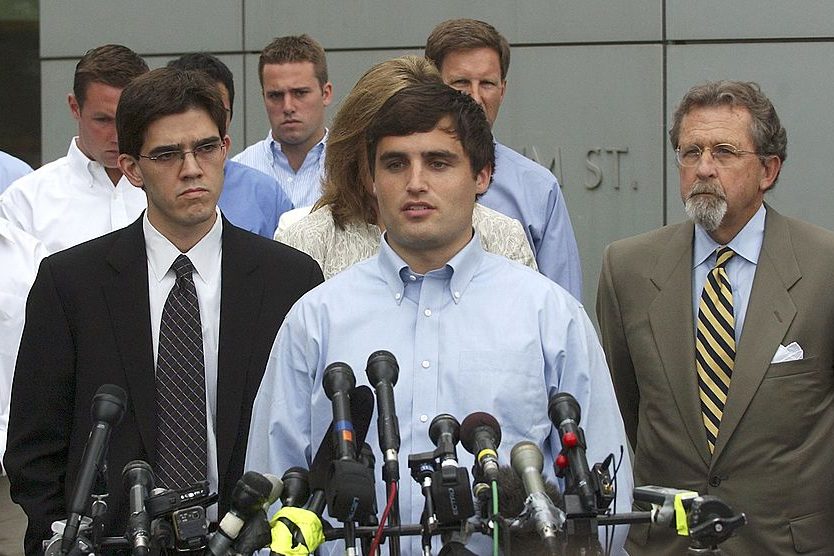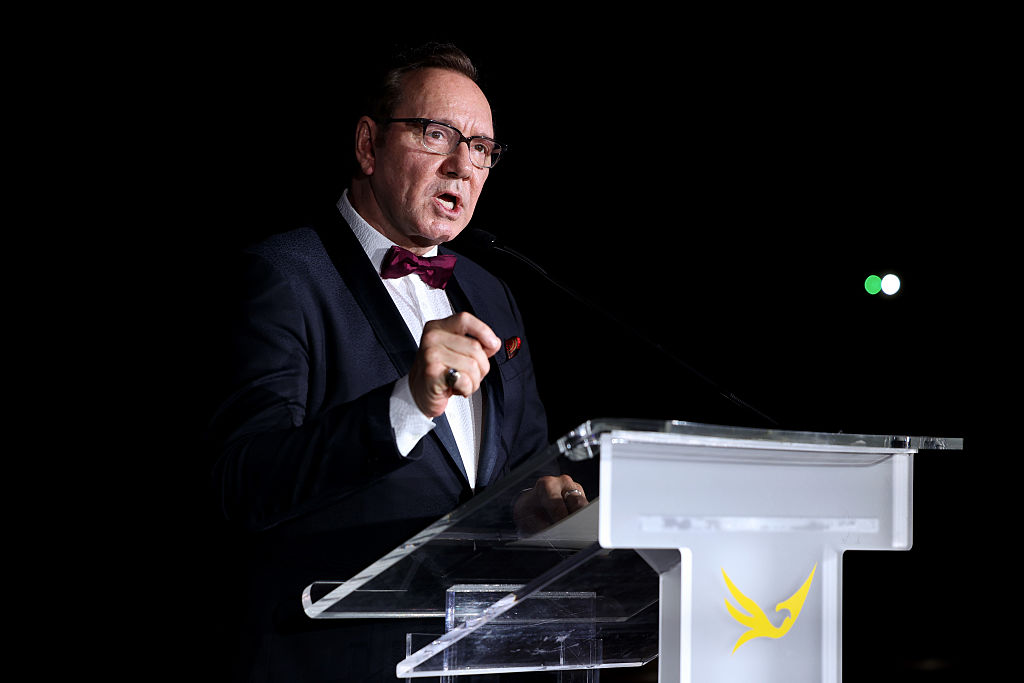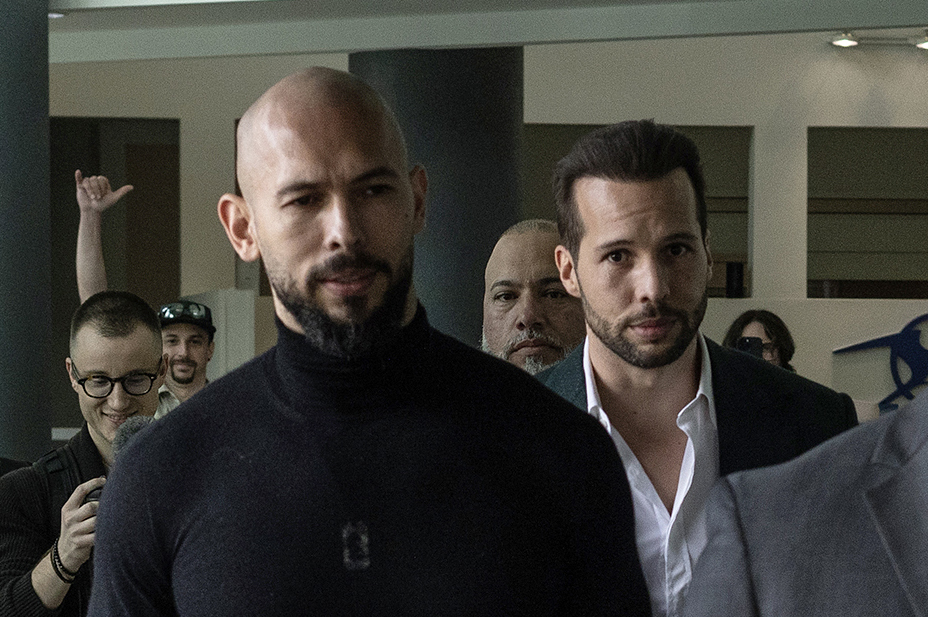Almost two decades after claiming she was raped at a party thrown by members of the Duke University lacrosse team, former stripper Crystal Mangum admitted Thursday that she lied. It is curious that she finally decided to state the obvious after years of standing by her rape accusation. Mangum, who is currently serving time in prison for the second-degree murder of her boyfriend in 2013, gave an interview that suggested her moment of truth might be tied to a conversion to Christianity.
“They trusted me that I wouldn’t betray their trust, and I testified falsely against them by saying that they raped me when they didn’t, and that was wrong,” Mangum said. “I made up a story that wasn’t true because I wanted validation from people and not from God.” Mangum apologized to the three Duke lacrosse players she accused of the assault and said she hopes they can forgive her.
The Duke lacrosse case captured the nation’s attention and news coverage was inescapable. I was in sixth grade at the time and remember watching members of the team give statements professing their innocence on TV, though I didn’t learn much about the details of the case until I got a bit older.
The case became a stand-in for brewing racial and class tensions in America, causing many to ignore obvious issues with Mangum’s story. It was a preview, in some ways, of “woke” America. The narrative was that the down-on-her-luck black exotic dancer with a difficult past had been exploited and abused by the privileged white jocks attending an elite East Coast institution. Some of the commentary fit more into classic stereotypes about high school and college cliques: jocks are bullies and womanizers, so it’s not a stretch to believe the Duke “lax bros” raped a vulnerable woman. Other observers cited the case as proof of “rape culture” on college campuses.
USA Today, Rolling Stone, the New York Times, the Boston Globe and other outlets covered the case favorably to the prosecution, minimizing holes in the district attorney’s case and insisting a conviction was all but guaranteed, while television commentators and left-wing activists champed at the bit to pillory the lacrosse players. Civil rights activist Jesse Jackson compared the alleged sexual assault to historical accounts of slaves being impregnated by their masters, Al Sharpton likened it to Abner Louima, a Haitian man who was raped by members of the NYPD, while other commentators compared the lacrosse team to the “mafia,” supported the withholding of evidence by the district attorney, and described people who defended the players as “rape-loving scum.”
Oddly enough, one of the few individuals willing to publicly defend the Duke lacrosse players was Stephen Miller. Yes, that Stephen Miller, the founder of America First Legal who will serve as deputy chief of staff for policy in Trump’s second term. He wrote conservative columns for the Duke student newspaper at the time and was invited on national news shows to give his perspective on the case. During an interview with noted crime commentator Nancy Grace after the first two arrests were made, Miller said, “I think I speak for many students when I say we’re very, very concerned that two innocent people, possibly, just had their lives ruined.” Grace gasped in horror at the assertion. Miller was invited back on several programs after the rape charges were dropped to take a well-deserved victory lap; he accused lacrosse team haters of pursuing a “political agenda” over the truth.
The rape charges were dropped after a series of unfortunate events for the bloodthirsty district attorney, Mike Nifong. One indicted player had evidence to corroborate an alibi that he wasn’t at the party when the alleged assault occurred, Mangum changed key details in her story, including how many men assaulted her, when the assault took place, etc. multiple times, and DNA testing returned the DNA of four men but none that matched the lacrosse players (the extent of this exonerating evidence was withheld by Nifong from the prosecution). The remaining charges, kidnapping and sexual offense, were taken over by Attorney General Roy Cooper’s office, and within months he dismissed all charges and declared the Duke players innocent. Nifong was disbarred for misconduct.
Mangum’s confession nearly two decades on is surely little comfort to the many people who had their lives destroyed by her false accusation: The three players whose reputations were irrevocably tarnished, even with their eventual exoneration. Their parents. The other members of the Duke lacrosse team, who were branded with guilt by association, lost a season of play and faced death threats. Duke students who also reported death threats and harassment and were scared to be on campus. The case reverberated well beyond the three players who were charged with the alleged crime and even after Cooper’s exoneration, those that called for the heads of the lacrosse players insisted something must have happened and that the case was complicated and complex.
Feminist and civil rights grifters squeezed all of the juice they could out of the Duke lacrosse case and marched right on to the next outrage with zero regard for the damage they caused. They rushed headlong into the retracted 2014 University of Virginia rape accusation in the Rolling Stone and, a decade after Duke, every #MeToo accusation they could get their hands on. As #MeToo fervor took over, legitimate claims quickly gave way to cries to “believe all women” and raise pitchforks against any man who so much as looked at a woman the wrong way. Duke should have served as a warning to avoid rushing to judgment when lives hang in the balance. Instead, for many, it only deepened the desire to put men in the guillotine.
Mangum took nearly twenty years to finally do the right thing. Her words now could never come close to healing the deep, lasting wound she ripped open when she falsely accused those Duke lacrosse players. And they will mean almost nothing to the misandrists and racists who prefer societal bloodletting to justice.


























Leave a Reply